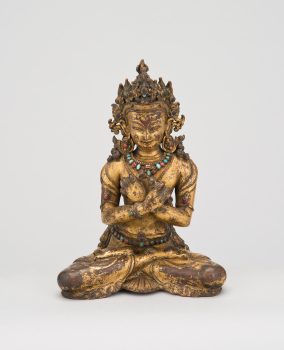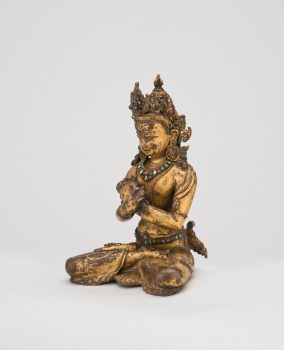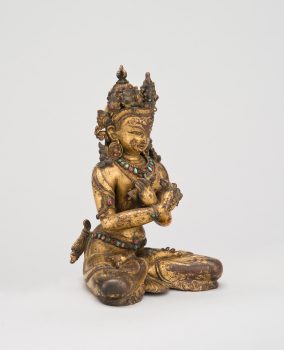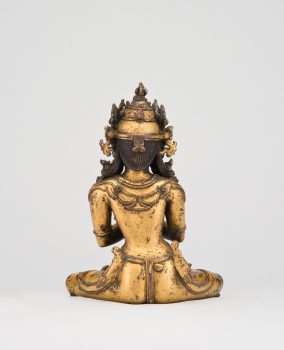Nepal
14th century
This gesture is that of embracing a consort and is symbolic of bringing together two aspects of enlightenment: wisdom and method.
Nepal
14th century




A religious movement that originated in India around the fifth to seventh century with sacred writings and esoteric teachings and practices transmitted from teacher to student through initiation. These remain an important part of Hinduism and Buddhism today.
Buddhist practitioners in some traditions believe that cutting through ordinary perceptions that keep us in the endless cycle of death and rebirth, known as samsara, can create a powerful and enhanced divine identity that leads to enlightenment.
A contemplative practice in which a person uses concentration and visualization to achieve aims such as transforming the mind and generating feelings of compassion. Techniques include focusing on breathing or visualizing oneself as a deity.
An awakened being who understands the true nature of reality and is free from the cycle of birth, death, and rebirth. While there are many buddhas, Siddhartha Gautama is the historical Buddha, whose teachings became the foundation of Buddhism.
The Himalayan kingdoms of the Kathmandu Valley were significant centers of Buddhist culture. Nepalese kings, Buddhist institutions, and ordinary people patronized the vibrant art guilds. The artistic traditions of the regions are well-known in Tibetan areas and beyond, and Newar artists have always been in high demand throughout Tibetan regions and Inner Asia.
Get the latest news and stories from the Rubin, plus occasional information on how to support our work.